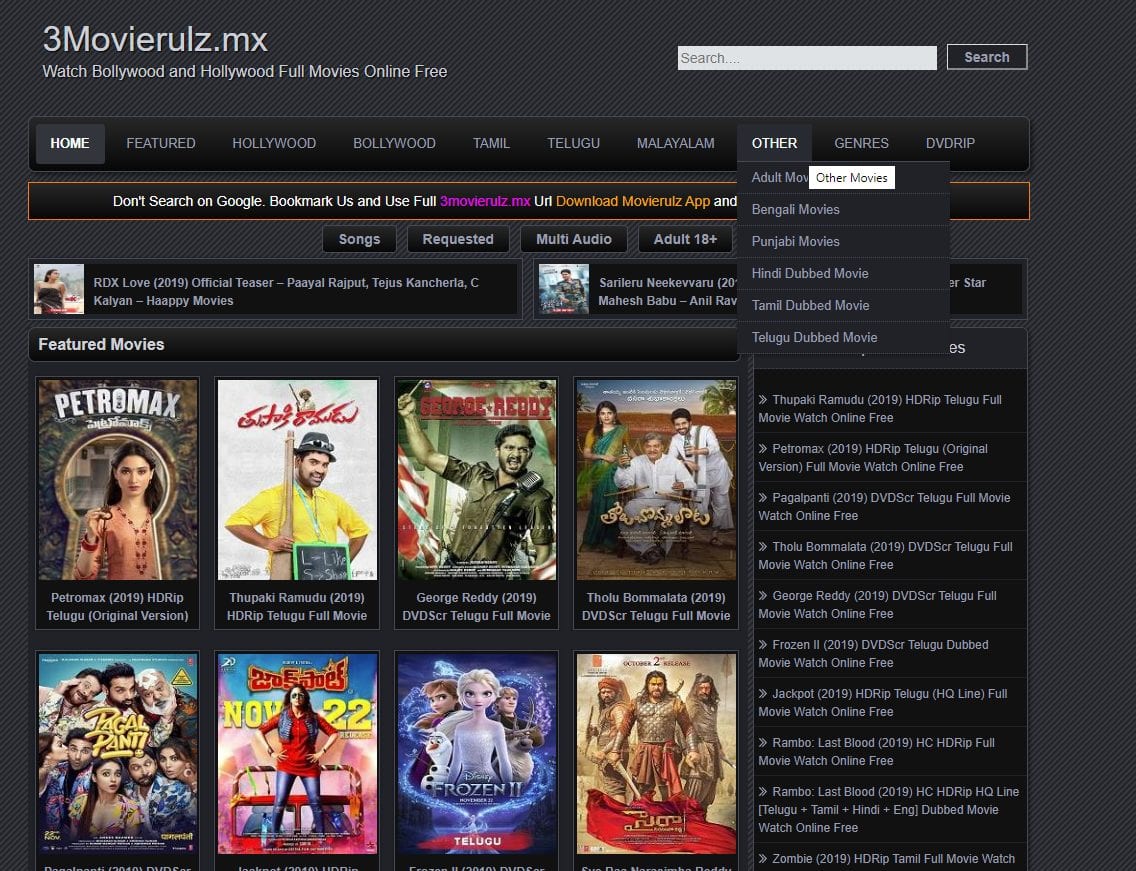Watch Telugu & Kannada Movies Online | Movierulz 2025
Is the allure of free entertainment truly irresistible? The siren song of cost-free movies and TV shows, readily available at our fingertips, has captivated audiences worldwide, raising complex questions about accessibility, legality, and the very future of cinema. The rise of platforms like Movierulz, offering a vast library of content spanning languages and genres, exemplifies this burgeoning trend.
Movierulz, a name whispered among online film enthusiasts, has become synonymous with readily available entertainment. From the latest Telugu and Kannada releases to the captivating world of K-dramas, Movierulz presents a diverse platter. But this seemingly boundless buffet comes at a cost. Operating outside the bounds of legal distribution, Movierulz raises significant concerns about copyright infringement and the economic impact on the film industry.
| Website Name | Movierulz |
| Content Type | Movies, TV Shows, Web Series |
| Languages | Telugu, Kannada, Tamil, Hindi, English, Malayalam, and others |
| Legality | Operates in violation of copyright laws |
| Risks | Potential exposure to malware, legal repercussions |
| Alternatives | Zee5, Netflix, Amazon Prime Video, Disney+ Hotstar, and other legitimate streaming services |
| Reference | Wikipedia: Copyright Infringement |
The 2024 Telugu film scene offered a diverse mix, with titles like Viswam, starring Gopichand and Kavya Thappar, and Premalu, featuring Naslin and Mamitha Baiju, vying for audience attention. These films, alongside others like Hot Spot and Raju Yadav, represent the breadth of Telugu cinema, encompassing action, romance, and comedy. However, their availability on platforms like Movierulz casts a shadow over their legitimate release and potential revenue.
The promise of "Movierulz 2025 latest HD Telugu, Kannada, Tamil South Indian movies" is a tempting proposition for viewers seeking instant gratification. But this convenience masks the intricate web of legal and ethical dilemmas surrounding piracy. Filmmakers, producers, distributors, and exhibitors invest significant resources in bringing a movie to the screen. Piracy undermines this investment, potentially jeopardizing future projects and impacting the livelihoods of those involved.
The draw of platforms like Movierulz extends beyond South Indian cinema. Bollywood, Hollywood, Punjabi films, and even international TV series and K-dramas find their way onto these sites, catering to a global audience hungry for free content. The ease of access, coupled with the vast selection, fuels the popularity of these platforms. "Watch now or download for later viewing!" becomes a compelling call to action, bypassing traditional distribution channels.
While the temptation to indulge in free entertainment is undeniable, the consequences of supporting piracy are far-reaching. From the financial losses suffered by the film industry to the potential legal ramifications for users, the true cost extends beyond the monetary. Moreover, these illicit platforms often lack the security measures of legitimate streaming services, exposing users to malware and other online threats.
The fight against online piracy is an ongoing battle. Authorities and content creators alike are constantly seeking ways to curb the illegal distribution of copyrighted material. However, the hydra-like nature of these platforms, with new proxies and mirror sites emerging as quickly as others are shut down, makes it a challenging task. Ultimately, the responsibility rests with the individual viewer to make informed choices about their entertainment consumption.
The future of cinema hinges on striking a balance between accessibility and sustainability. Legitimate streaming services, with their ever-expanding libraries and affordable subscription models, offer a viable alternative to piracy. By supporting these platforms, viewers not only contribute to the longevity of the film industry but also ensure a safer and more ethical entertainment experience.
Choosing legal avenues for accessing movies and TV shows is an investment in the future of storytelling. It allows creators to continue crafting compelling narratives, ensures fair compensation for their work, and fosters a sustainable environment for the entertainment industry to thrive.
Beyond the legal arguments, the ethical implications of consuming pirated content are equally significant. Supporting piracy is akin to stealing the work of artists, writers, directors, and countless others who dedicate their time and talent to bringing stories to life. It devalues their contributions and disregards the intellectual property rights that protect their creative endeavors.
Ultimately, the decision of where to watch movies and TV shows rests with the individual. By understanding the complexities surrounding piracy and its impact on the creative ecosystem, viewers can make informed choices that support ethical and sustainable entertainment consumption. The future of film, after all, depends on the choices we make today.


